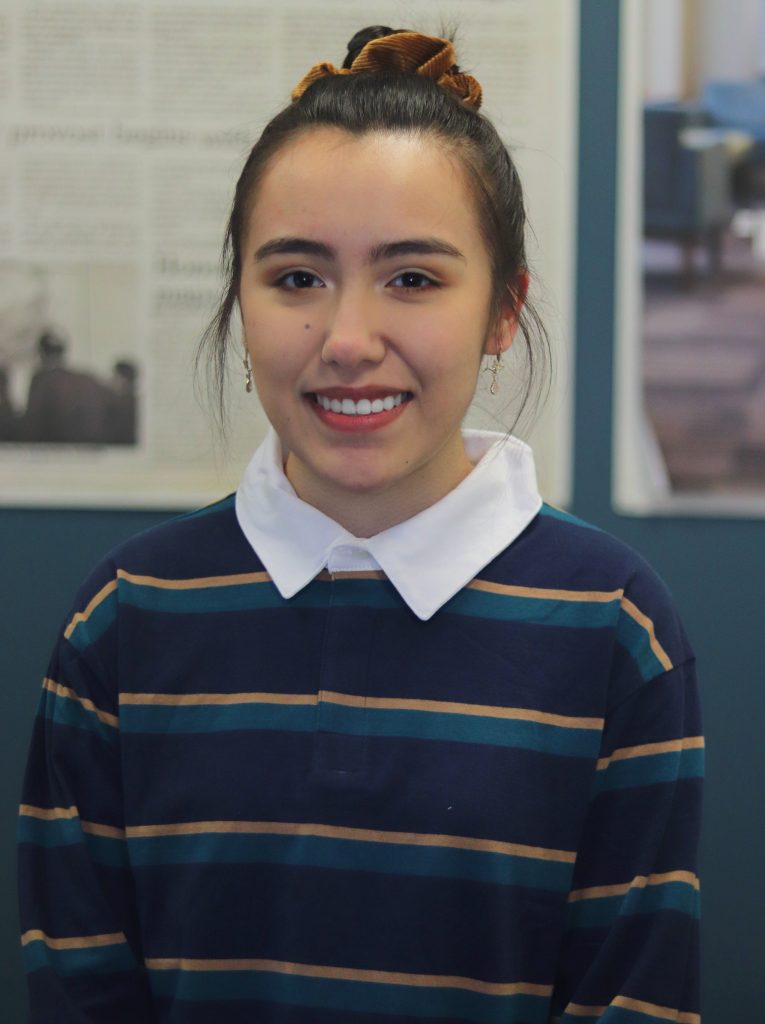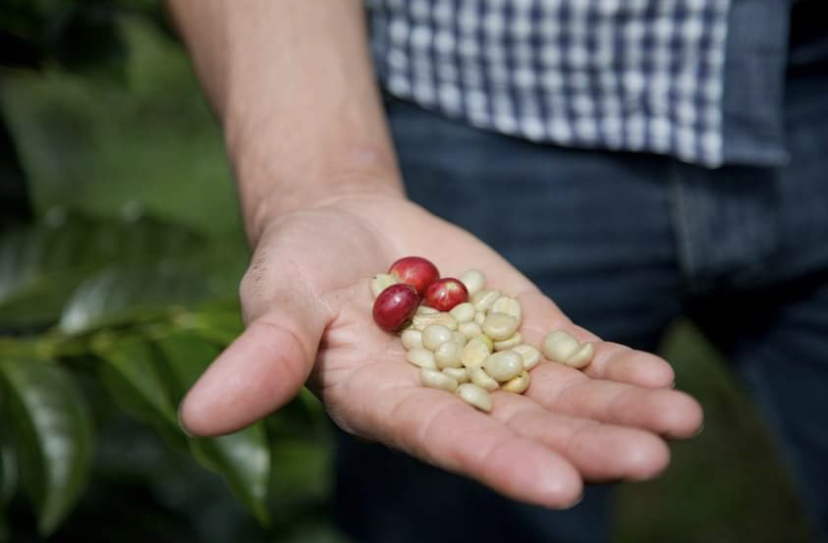Anticonquista Café not only roasts their coffee here in Chicago, but harvests it from the high mountains of Guatemala.
In mid-March, the owners of Anticonquista Café — Elmer Fajardo and his wife Lauren Reese opened a location at Hermosa and Logan Square. The shop is nicknamed La Montanita.
“My family is very happy that we are going to have our own space,” Fajardo said ahead of the opening. “They know that I sell coffee at farmers markets and now that we have this place, they see how the business is doing very well.”
Not only are they selling their packaged coffee beans and beverages, but also extending the invitation to other vendors in the community.
“It’s one step closer to having a permanent place,” Reese said.

In fact, it is one of the many steps they have taken throughout their coffee business.
The path of Anticonquista Café began when they received their license in December 2019. Covid-19 put a delay in their first shipment, but in September 2020 they obtained their exporter’s license and then the coffee arrived in October.
They started selling the coffee at the Logan Square Farmers Market. In 2021, they also began selling coffee via bike, touring the streets of Chicago and making stops at local farmers’ markets and street festivals.
Farjado was only 7 years old when he learned about the coffee process. At the age of 10, he already knew how to cut, dry andwash coffee.
Coffee has always been a big part of the Farjado family.
“We have planted coffee farms since I was a child,” Farjado said. “I was born on the farms. My grandparents had coffee farms too.”
At the age of 17, Farjado emigrated to the United States and provided his family with a little money since the farm was going through bad times.
“When I saw the price of a coffee in coffee shops here in the U.S, I remembered how I worked in Guatemala with my family, that there were times when my father lost money from his farm,” Farjado said.
Fajardo and Reese say that when they started selling the product from the farm here in the U.S. and seeing how people support them was a great satisfaction.
“I like to work with my family,” Farjado said. “They are happy with the work we have harvested. I am happy because my family supports us a lot in our vision of Anticonquista Café.”
Fajardo is a big fan and expert on coffee.
“I really like coffee,” Farjado said. “Anything that has a coffee flavor tastes good.”
Reese says that Farjado’s mother roasts the coffee beans on the comal, a smooth flat griddle. When someone buys roasted coffee here in the U.S., the entire coffee bean is evenly roasted. There is more control in roasting coffee beans.
“A lot of marketing will talk about artisan roasted coffee, but actually when we start roasting it here with the machine, it is very much like a science-based roast,” Reese said. “Artisan roasting happens when Elmer’s mom does it. It’s more intuitive.”
Making coffee is laborious and necessitates a lot of effort to cultivate it.
At Anticonquista Café they not only sell delicious coffee, but also have workshops that teach the history of coffee.
“We have brought coffee that has not been sorted so our clients can choose the coffee and see the defects,” Farjado said. “We want them to see the part of the work that happens on a farm.”
Reese says it’s important to educate their consumers about how coffee gets here, but also to talk about the history of coffee.
“There are a lot of people who work in the coffee industry, but not by choice,” Reese said. “It is something that is taken for granted among other things here in the U.S.”
“Much of the coffee comes from the farmers,” Farjado said. “This is a point I want people to take into account. We want the farmers there [Guatemala] to receive more money for their product.”
Although Anticonquista Café space is not large enough for community programming, their goal is in the future to have a larger space to offer immigrant resource events that organizations in Chicago can help facilitate.
They not only want to give back to the Chicago community, but also provide opportunities in Guatemala.
“We want to give Guatemalan women employment in our business, because it is difficult for women to earn more money than men,” Fajardo said. “Anticonquista Café can be that change and provide more employment in Guatemala.”
Cover Photo: Anticonquista Café grows its coffee beans in Central America and sells and roasts them in Chicago.Photo: @anticonquistacafe | Instagram

Erika Pérez(@_Kika_Perez) is the Managing Editor of La DePaulia. She’s specializing in Communications & Latino Media. Erika is most empowered when writing about the uplifting stories of the Latinx community. She’s been reporting for La DePaulia’s news section for two years.”Email her at managingladepaulia@depauliaonline.com
Publisher’s Notes: You can read Erika’s Spanish language version of Anticonquista Café brings a unique coffee experience to the Logan Square and Hermosa community by clicking on Anticonquista Café trae una experiencia de café única al vecindario de Logan Square y Hermosa.
Illinois Latino News (ILLN) and La DePaulia are partners in best serving the Hispanic-Latino community.
